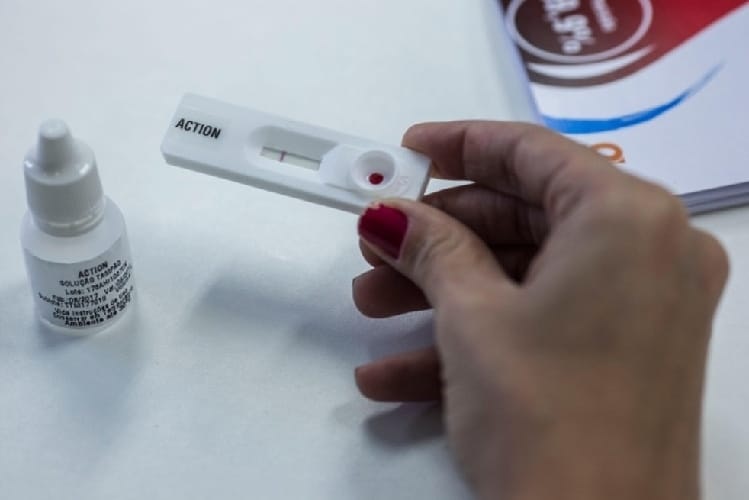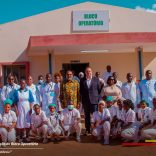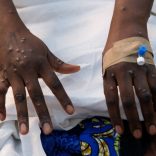Mozambique: Surgical unit opens in Ile, Zambézia, with Portucel support - Watch
Mozambique introduces HIV/AIDS self-testing

File photo: Folha de Maputo
Mozambican health authorities have embarked on a massive campaign to introduce HIV/AIDS self-testing, an initiative aimed at reducing the number of new Human Immunodeficiency Virus infections in the country.
Through self-testing, people concerned about diagnosis confidentiality or those who are generally not easily reachable by conventional counselling and testing can now know their HIV status at their place of convenience and in the presence of a person they trust. However, the authorities advise that people should always confirm the results with conventional tests.
“We are aware that to end HIV as a public health threat by 2030, we must focus on those most at risk, accelerate the introduction of new and existing methods of diagnosis and prevention, and ensuring early access to the most effective treatment,” said Health Minister Armindo Tiago.
The minister was speaking this Monday in Maputo, at the opening ceremony of the IV Meeting of the Consultative Council of the National AIDS Council, a two-day event under the theme “Ending inequalities driving HIV epidemic and prioritize prevention”.
According to Tiago, the introduction and expansion of more effective prevention methods such as pre-exposure prophylaxis, also boosts actions to strengthen combined prevention and thus accelerate the fall in the number of new infections mainly among those at higher risk of infection such as adolescents, key population, etc.
“We are ensuring early treatment with the most effective drugs because it is critical to reduce HIV transmission and save lives. We have been at the forefront in adopting new regimens that integrate dolutegravir (DTG) as part of the preferred treatment recommended by the World Health Organization (WHO)”, he assured.
He said that the proportion of Mozambicans on treatment with this antiretroviral, which is more effective, easier to take and has fewer side effects than others exceeds 80 percent.
The government, said the Minister, is aware of the current challenges of funding and human resources for efficient coordination and monitoring of the national response to HIV/AIDS and acknowledges everyone’s efforts in improving the coordination of the response.
“Your efforts are producing encouraging results as shown by an increased participation of the public and private sectors and civil society in the operationalization of the National Strategic Response Plan for HIV and AIDS (PEN V), for the year 2022″, he stressed.
Thus, he encourages all stakeholders to actively contribute to the operationalization of PEN V by aligning sector plans with the strategic plan and sharing them with the response coordinating institutions at all levels.












Leave a Reply
Be the First to Comment!
You must be logged in to post a comment.
You must be logged in to post a comment.